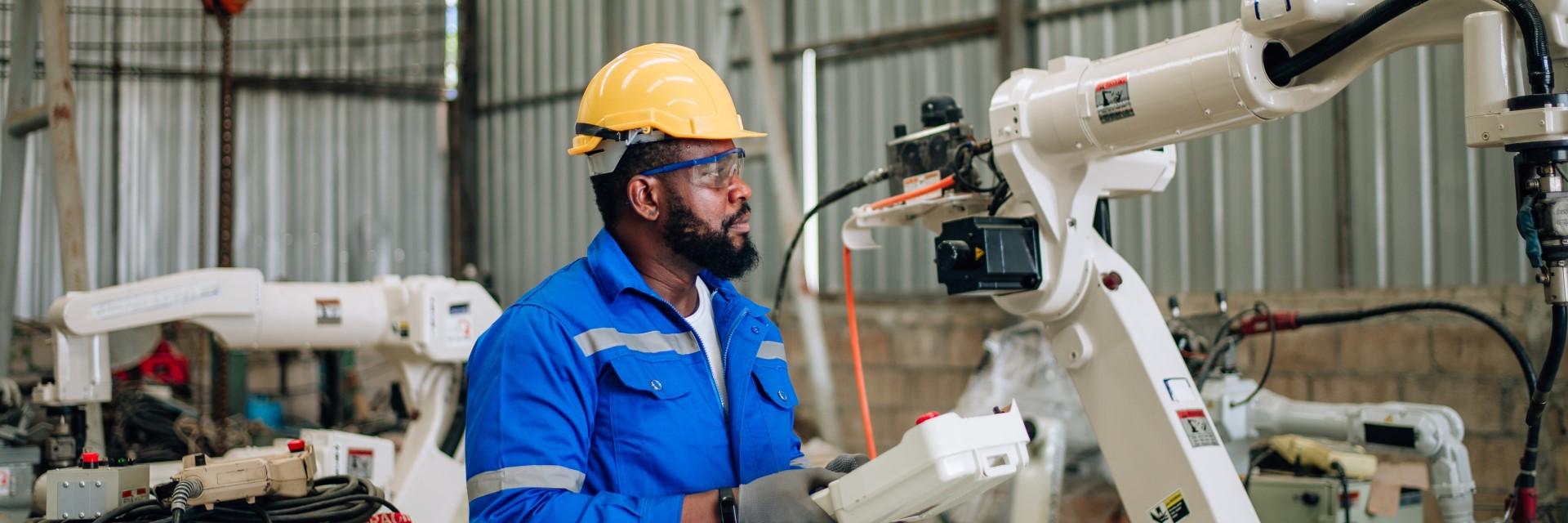Addis Ababa, 16 November 2023 - Inclusive and sustainable approaches are critical for Africa’s industrial development, says Stephen Karingi, Director, Regional Integration and Trade Division, Economic Commission for Africa (ECA).
“Industrialization is as a result of good policy. We need commitment by member states on policy and economic reforms that are home grown to promote industrialization on the continent,” said Mr Karingi.
The ECA Director made the remarks at the High-Level Development Dialogue: How could Africa leverage the African Continental Free Trade Area (AfCFTA) to spur sustainable inclusive industrialization at the ongoing African Economic Conference (AEC) 2023 in Addis Ababa Ethiopia (16 -18 November 2023).
AEC is jointly organized by the African Development Bank, the Economic Commission for Africa and the United Nations Development Programme, under the theme “Imperatives for sustainable industrial development in Africa” in 2023.
The Conference will provide an opportunity for participants to review the experience of industrialization on the continent.
Mr Karingi noted that the promise of the African Continental Free Trade Area (AfCFTA) is to unite African economies and create one single market for 1.5 billion people in Africa to promote African trade. This requires political will by the member states
While giving the lessons learnt by Ethiopia from other industrialized countries, Melaku Alebel, Minister of Industry, Federal Democratic Republic of Ethiopia said Ethiopia is actively pursuing various mechanisms on manufacturing through AfCFTA to create employment opportunity, economic growth. To promote industrialization, Ethiopia has highly invested in policy and regulatory reforms.
On infrastructure, Ethiopia’s minister said that the country has heavily invested in infrastructure particularly railway, airlines energy, and road.
Focus is on manufacturing industry to create employment opportunity. In this case light manufacturing.
He said that Africa has a huge labour potential but should be educated for efficiency.
Africa also needs to invest on export promotion and import substitution strategy for better trade balance
Kevin Urama, Chief Economist and Vice-President, African Development Bank Group (AfDB) said to fully implement the AfCFTA African member states should prioritize production with focus on manufacturing.
“Countries should also investment more on infrastructure – the roads, rails, airlines - for moving goods to market and to improve factors of production and manufactured goods,” said Prof Urama. Adding that knowledge and governance capacity needs to be prioritized.
“Trade barriers among countries is still a challenge making trade difficult. There is need to invest in boarder agencies and customs to remove the barriers and improve efficacy of AfCFTA.”
Financial integration he said is key for trade to promote the cross boarder trading and increase liquidity.
Adam Elhiraika, Director of the Macroeconomics and Governance Division, ECA said there is need for a new narrative on Africa’s transformation through industrialization.
“Africa youth should challenge the narrative of Africa that the continent cannot integrate, industrialize. African can finance its development,” said Mr Elhiraika.
He noted that domestic resource mobilization in Africa needs a comprehensive macroeconomic policy that focus on structural transformation that focusses on industrialization as its tool.
“Africa contributes about 1.7% of global value chain which is very small. Value addition on the continent is a must. There is need to promote regional and local value chains not just for exports but also for local use,” said the ECA Director.
The African Continental Free Trade Area (AfCFTA) aims to unite 54 diverse economies, creating a single market for 1.5 billion people in Africa.
Issued by:
Communications Section
Economic Commission for Africa
PO Box 3001
Addis Ababa
Ethiopia
Tel: +251 11 551 5826
E-mail: eca-info@un.org

